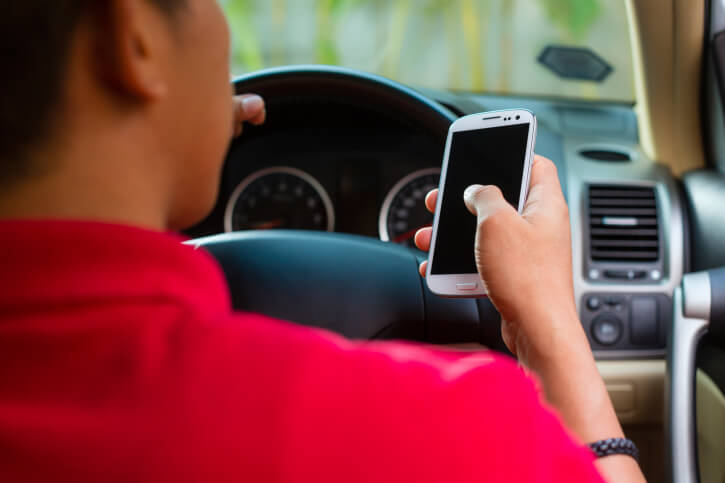Following on from the feedback received in the presentation I wanted to try and narrow down my research to find a very clear issue. To do so, I re-read through the initial research made to find particular issues within the area of social media addiction and misuse. The brainstorm can be seen below.
Issue 1
The first particular issue that I found from reading through my research is challenges that trend on social media sites, such as Neknominations and the Eraser Challenge. Due to people's Fear Of Missing Out and Social Validation, people have been putting their health at risk to simply be a part of the trend. Self harm and even deaths have been cause by such challenges.
The main issue here is that social media sites are not taking any measures to prevent such challenges from being spread around their sites. Furthermore, there is little to none awareness of why partaking in such challenges is dangerous. Facebook highlighted that the challenges do not breach their rules and regulations, and they put no effort into stopping previous challenges. For this reason, it seems necessary that a campaign should be launched, awaring people of the health issues and consequences that can occur from taking part.
In terms of the target audience, younger people are much more naive and are more likely to take part in such challenges without realising the consequences. On the other hand, older people also need to be awared of the dangers, particularly for challenges that include alcoholic substances. Research into both would have to be made and considered when trying to resolve such an issue.

A current challenge could be used as a focus of this campaign. One very recent one that popped up on a friend's Facebook is 'The Blue Whale Challenge'. Whilst this is not a challenge that is spread from user to user on social media, it is one that takes place on a Russian social media site. It's described as a game, but the Blue Whale Challenge is far from a game. Young teens who accept the challenge are encouraged to complete a series of tasks which get more and more sinister and at the end of the game the player is urged to take their own life in order to "win."
The Blue Whale suicide game goes by many names including 'A Silent House,' 'A Sea Of Whales' and 'Wake Me Up At 4:20am.' It takes 50 days to complete and is played primarily via the website VKontakte, which is a popular social network in Russia. It gets its name from a common belief that blue whales voluntarily beach themselves in order to end their own lives.
The game is attracting teens as young as 12-years-old in Russia and Central Asian countries but recent reports suggest the game could be spreading across Europe and into the UK. The game has been blamed by the Russian media as the reason why 80 to 130 children committed suicide between November 2015 and April 2016.
One of the men behind the so-called blue whale challenge has pleaded guilty to inciting teenagers to suicide. Whilst he has been found, the challenge still occurs online.
In terms of distribution, outcomes could be either digital or physical; research was have to be made to consider what would be more effective at targeting the users that could be targeted.
Issue 2
The second main issue found is the addiction side of social media - particularly users that are addicted to Facebook. Many people are addicted to social media because it gives them Social Validation (which makes you feel good). Because of this, people are not willing to give it up, as they do no get a 'rewarding' feeling from other things. Whilst social media has its benefits, addiction and over-use of sites, such as Facebook, can cause lead to various physical problems, ranging from less serious aspects, such as lack in concentration, motivation, tiredness and procrastination to more severe psychiatric disorders, including depression, anxiety, low self-esteem and more. As highlighted in the initial research stage, Dr Kimberly Young explains that social media addiction can also cause people to lose their jobs, people's health to be affected due to loss of nutrition/sleep and children can have reading deficits due to the linear process of digital reading.
The problem with social media addiction is that people may not actually know that they are addicted. There is no actual recommended time to be spent on social media per day, which therefore makes this issue hard to resolve. Despite this, when considering why people are addicted to social media it is obvious that solutions that already exist, such as social media blockers and limiters, are not 'rewarding' in any aspect. For this reason, addicted people would not be very willing to limit their time on such platforms.
One possible resolution to the problem is that, to try and limit the amount of time in which people spend on social media, a rewarding app could be made, that makes people feel good about regulating their usage. Essentially, users could be given prizes and discounts when they meet a certain recommended daily limit of using apps, such as Facebook. These prizes/discounts would promote offline activities - 50% off eating in at a local restaurant for example or a discount on a local gym/sports facility. In a sense, this is similar to apps like Swagbucks; however, it promotes the regulation of social media.
In terms of the distribution of the app it could be advertised on the platforms it wants to regulate, such as Facebook, to attract the users it wants to change.
Issue 3
The third and final issue found is less about social media addiction and more about mobile addiction as a whole, and how 26% of all car accidents are caused by a driver using a mobile device. This is quite clearly an issue, as car accidents can be severe and are a cause of injury, and even death. The cause is mainly due to Social Validation and Fear Of Missing Out, where drivers cannot focus on the road without using their mobile devices.
According to findings published as part of the RAC’s Report on Motoring 2016, the number of drivers who own up to using a handheld mobile phone when driving in the UK has increased from 8% in 2014 to 31% in 2016. Additionally, there has been a rise in drivers sending a text, email or posting on social media, with the figure increasing from 7% two years ago to 19% today. This increase highlights that the issue is becoming more problematic, and that there needs to be a resolution that reduces the number of mobile phone drivers as much as possible.
Talking to other people in the class, many people said that they have seen a lot more posters and campaigns that focus on drink driving than mobile phone use. This is one aspect that I will research into, as it is one matter that should be addressed.
One way in which this issue could be resolved is by launching a feature that physically stops drivers from using their mobile devices when driving. This, alongside promotional material, would aim to tackle the problem head on - stopping the use of mobiles in cars entirely. In terms of distribution, the feature would have to be rolled out on certain devices; however, promotional material, such as posters, digital marketing videos and other outcomes could be distributed in different ways.




No comments:
Post a Comment